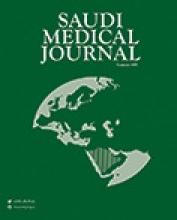Abstract
OBJECTIVE: To evaluate effectiveness of 2% tea lotion in comparison with 5% zinc sulphate solution in the treatment of acne vulgaris.
METHODS: This is a single-blind randomly comparative therapeutic clinical trial carried out in the Department of Dermatology, Baghdad Teaching Hospital, Baghdad, Iraq from June 2006 to December 2007. Full history and clinical examination were studied for each patient regarding all relevant points of the disease, to evaluate the severity of acne. Forty-seven patients with acne vulgaris were divided randomly into 2 groups, and were instructed to use the following solutions twice daily for 2 months; group A used 2% tea lotion, group B used 5% zinc sulphate solution. Patients with papulopustular lesions were included in the study, while patients with severe acne were excluded. The clinical improvement was scored by counting the number of inflammatory lesions before, and after treatment.
RESULTS: Forty patients completed the study, their ages ranged from 13-27 years with a mean±standard deviation of 19.5±3.5 years with 20 patients in each group. Two percent tea lotion was statistically significant in decreasing the number of the inflammatory lesions in acne vulgaris, while 5% zinc sulphate solution was beneficial, but did not reach statistically significant level as tea lotion.
CONCLUSION: Two percent tea lotion was a good alternative remedy to be used in the treatment of acne vulgaris, and was much superior than topical 5% zinc sulphate solution.
- Copyright: © Saudi Medical Journal
This is an open-access article distributed under the terms of the Creative Commons Attribution-Noncommercial-Share Alike 3.0 Unported, which permits unrestricted use, distribution, and reproduction in any medium, provided the original work is properly cited.






